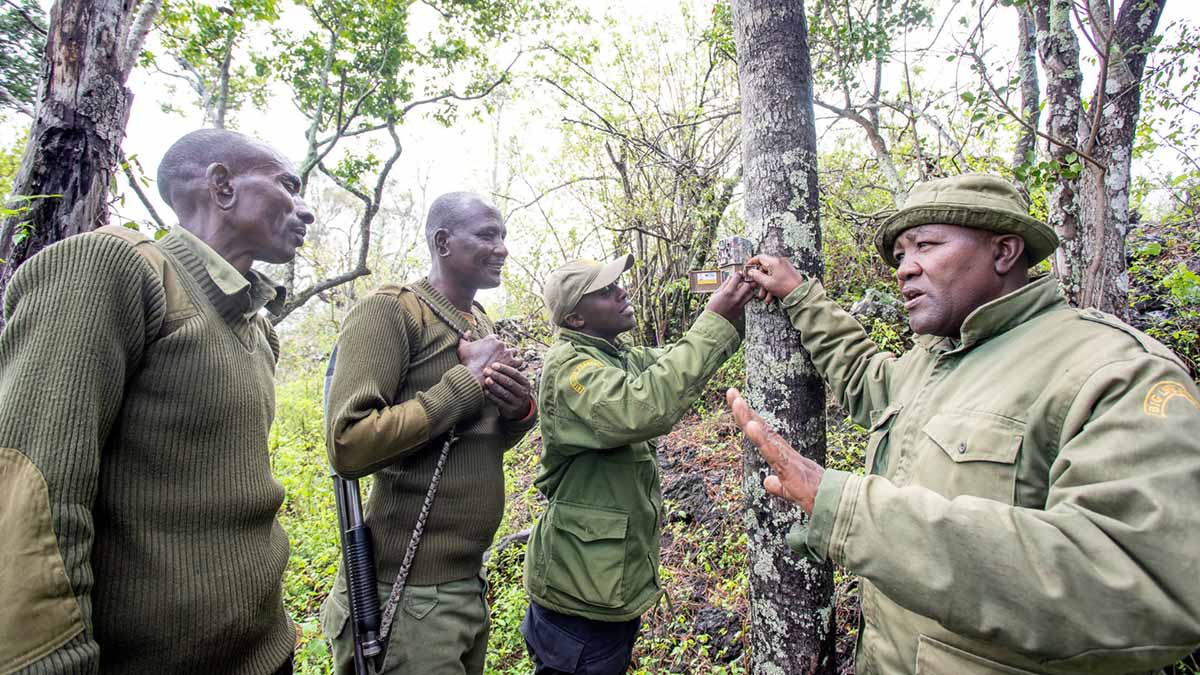 The eight critically endangered black rhinos that live in the remote Chyulu Hills area are extremely elusive.
The eight critically endangered black rhinos that live in the remote Chyulu Hills area are extremely elusive.
So elusive in fact that despite 63 rangers across 10 outposts dedicated to patrolling, monitoring, and protecting the Chyulu their habitat every single day, our rangers have only seen them directly on 32 occasions in the last five years.
Sergeant Mutinda knows how difficult it is to find them, and he would know. Before he became a ranger with Big Life, he used to hunt them.
He says, “Rhinos like three things: a place they can wallow, trees where they can rest from the sun, and lots of succulent plants. If you find somewhere with all three of these things, you will find rhinos. Despite this, it would still take me weeks of waiting to find one.”
That is why modern technology is critical to our monitoring and understanding of these secretive animals. Camera traps now provide key insights to their health, habits, locations, and interactions, allowing us to monitor them despite how elusive they are.
All of Big Life’s field equipment is subjected to harsh conditions. The remote cameras that help monitor the Chyulu rhinos often get damaged by elephants or baboons. Python locks and casings offer some protection, but the cost of replacing them is high.
Mutinda’s wealth of knowledge about these rhinos has been invaluable to Big Life’s rangers. He has shared everything he knows about how to track them, leading to immense improvement over their protection. Just recently, he helped rhino rangers explore a new section of the Chyulus to identify better camera trap locations.
Please support our rangers and the technology they need to protect wildlife with a donation today. Photo: Joshua Clay
